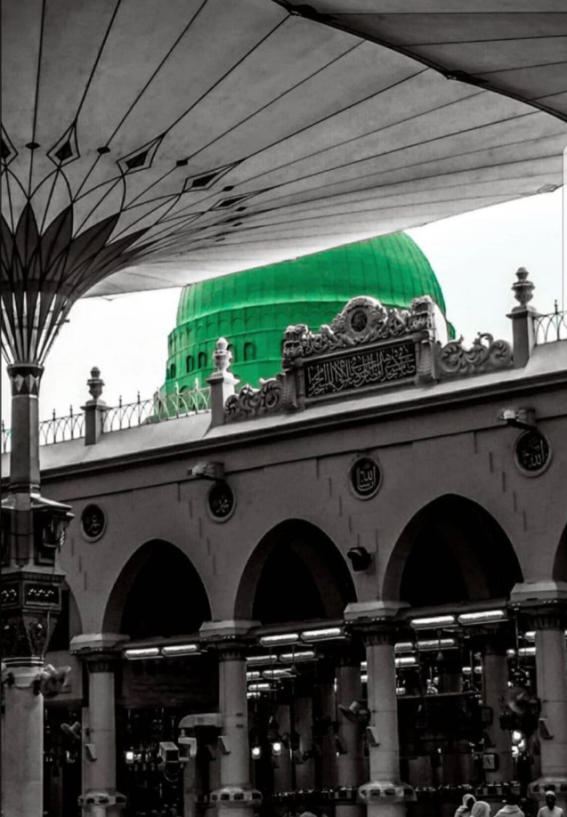بسم الله الرحمن الرحيم

I gave my class a competition when they finished their Seerah book, to write the summary of the Seerah in a poetic form. Here are the winners! Alhumdu Lillah…
He was born in the year when Abraha brought his elephants,
And it was the year Allah showed his benevolence.
Never knowing his father, his life was hard to fix,
But sadly, his mother also died when he was at the age of 6.
Now in the hands of Abdul Muttalib his life looked to be great,
It was a shame that this honoured man died when the Prophet SAW was only 8.
From then on, his uncle Abu Talib held the responsibility of his life,
And when the Prophet SAW was 25, Khadijah RA was to be his first wife.
With Khadijah RA, 2 boys and 4 girls he had,
A happy family they were and he was glad.
Gaining Prophethood at the age of of 40, he had an Ummah to make,
To serve Allah, he made it an opportunity that he would proudly take.
When it came to his wives, he had eleven,
And in one sitting he granted ten Sahabah RA Heaven.
From Makkah to Madinah he migrated with his Sahabah RA,
But he returned to do Hajj and do Tawaf of the Ka’bah.
Together they fought in in many battles for the sake of their Lord,
Passionately calling ‘Allahu Akbar’ as they up lifted up their swords.
At the age of 63, the Prophet Muhammad SAW sadly passed away,
However, the religion of Islam has lived on to this day.
Uwaiz Ebrahim Bahadur, 15 years old.
1st position.

When the truth was lost and hearts were locked,
Allah sent a Prophet to guide hearts which were lost.
The blessed Muhammad was born in Makkah.
He was sent to teach right from wrong,
To worship nobody besides Allah, who is the only one.
His Sunnah guided people who were astray,
It gave them a way of life, telling them how to behave.
The Prophet SAW told us Paradise or Hell,
To follow the Qur’an and act upon what is said.
He loved nobody more than his final Ummah,
Even as he lay on his deathbed he cried for his followers.
The moment he left this world,
He left 3 men in charge to ensure the beauty,
Of Islam reached everyone’s hearts.
Zubair Iqbal Patel, 18 years old.
2nd position.

About the Prophet Muhammad’s SAW Life
In the year 570 a special boy was born,
His name was Muhammad and deserved to take the throne.
He was born in Makkah where the beautiful Ka’bah was built by his beloved ancestors Ibraheem AS and Ismaeel AS,
The unfortunate demise of the Prophet’s father Abullah RA took place two months before he was born.
His mother Aminah RA sent him to Halimah Sadiyah to be nursed and be brought up by her,
After the 4 years he spend in the tribe of Saad, his respected mother passed away.
He then went to live with his courageous grandfather Abdul Muttalib, whose soul went after 2 years,
It was now the blessed Abu Talib’s turn, it was from him that the Prophet SAW started to learn.
The Prophet SAW was now 25 and he travelled to Syria at the request of Khadijah RA,
He then married her and had six children – 2 boys and 4 girls.
The 2 sons Abdullah and Qasim died when they were infants,
This was a tragic moment for him SAW,
And how can we forget his adopted son Zayd ibn Harithah RA?
His daughters, Zaynab, Ruqayyah, Umme Kulthum and Fatimah RA,
Two were married to Uthman RA and one to Ali RA.
As time went by, Islam grew and the Muslims had enemies,
They fought in wars like Badr where there were fewer than 400 men,
But the Makkans had more than 1,000 as enemy.
Islam spread far when the Prophet SAW became old, by 63
He was leading Maghrib Salah and could not continue, so told Abu Bakr to carry on.
This was an indication, to the next leader after him SAW,
Who was known as al-Siddique, the most truthful after him SAW.
Adam Irfan Mohammed, 11 years old.
2nd position

A Poem About The Prophet Muhammad SAW
He was born in the Year of the Elephant,
The Year of the Elephant is called Aamul Feel.
The Prophet SAW was cared by Halima RA, but when it was time to go,
Halima RA wanted him to stay some more.
When he returned, at age 6 his mother passed away,
This was a time of very tough days.
Then came along his beloved grandad Abdul Muttalib, who took him in his care,
His grandad was very just and very fair.
At the age of 25 he got married to a lady called Khadijah RA,
And later, in total he had 11 wives.
At the age of 40 he got Prophethood,
In Makkah there was a lot of evil and not much good.
He SAW became a Prophet, the last Prophet of Allah,
This Prophet made Islam reach very very far!
Abdullah Faizal Kalu, 9 years old.
3rd position.









